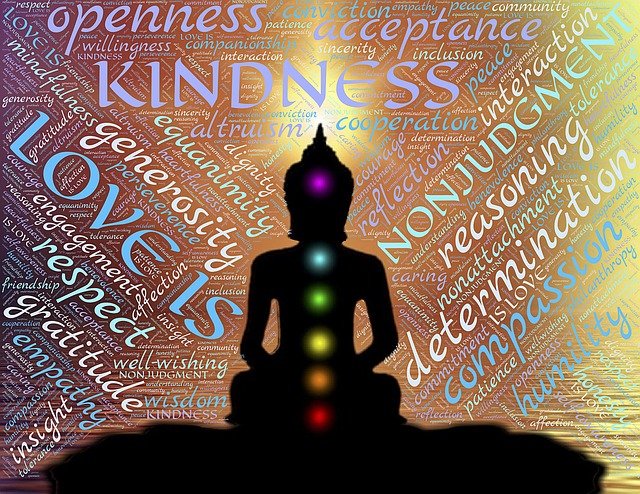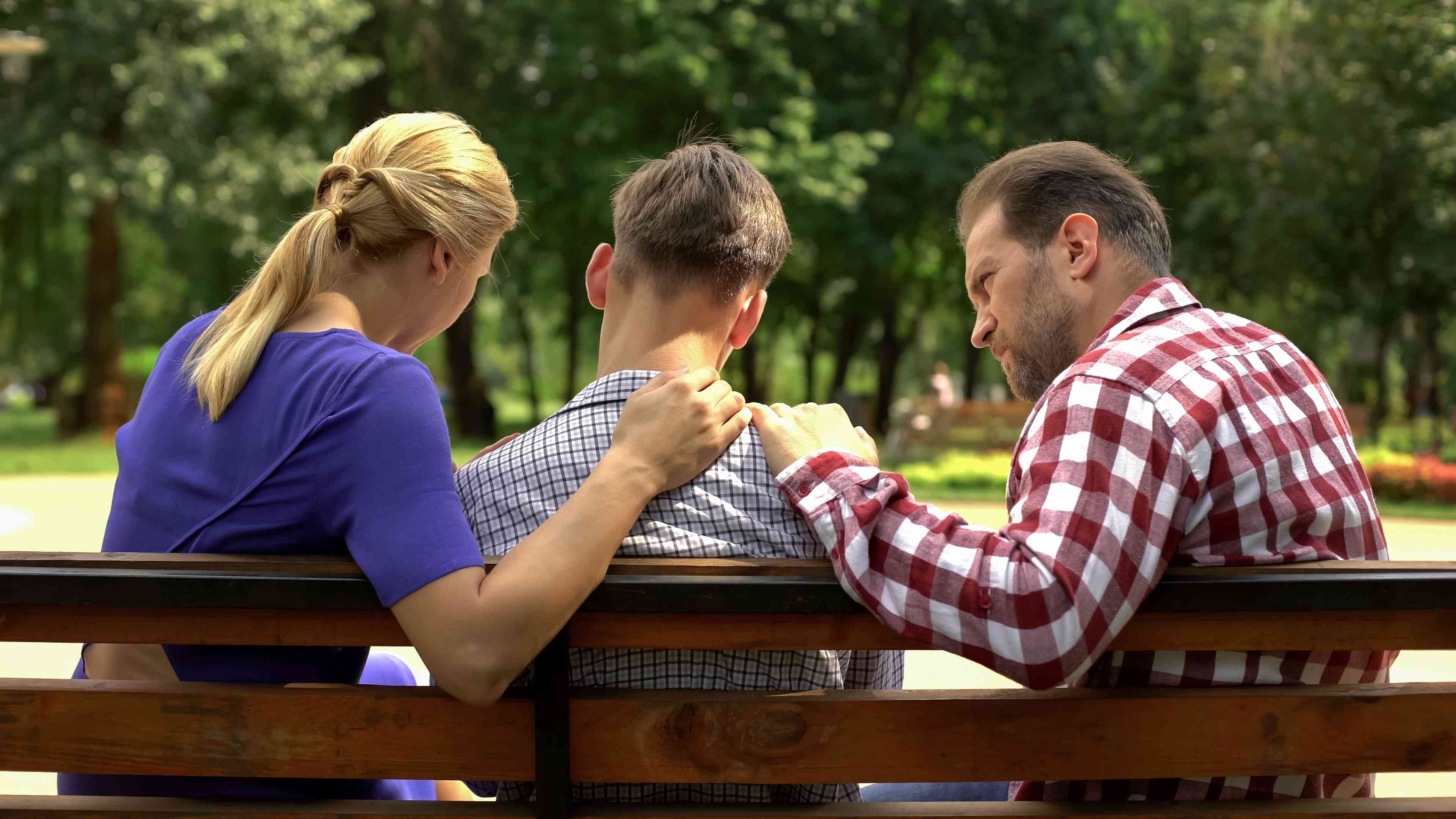Grief is usually thought of as a response to the loss of a loved one through death. Many people are unaware of the many kinds of losses that evoke grief. The result of this misunderstanding is that some of us have experienced lengthened suffering from unrecognized or incomplete grief.
We cannot recover from the symptoms of Grief if we do not recognize our Loss. When we experience a loss, it must be accompanied through a process that allow us to express our feelings of despair, vulnerability, disorientation and other symptoms. When our emotions are buried or go beneath the surface, we may be unaware of how the losses affect our lives and relationships.
Some losses, other than physical death of a loved one, that may evoke grief include: Divorce or Romantic Breakup; Loss or Impairment of a Body Function; Job Losses; Illnesses–Mental and Physical (both personal or family member); Major Moves, or Relocation; Loss of Trust (spouse/partner affair, or adultery; alcohol/substance abuse by parent); Loss of Safety or Control of Body (physical or sexual assault); Other significant Death Losses (e.g. friend or colleague, miscarriage, pet loss).
In the summer of 2014, I lost my best friend and sister, Jackie, to death after her long battle with cancer. I suppressed the pain, anger, despair, resentment, and depression I experienced during her long suffering. I did not recognize, at that time, my emotional state was due to loss of the relationship with my sister. In my mind, she was not the sister and best friend I knew so well–her persona and physical appearance had drastically changed. I missed our talks, her advice, and our family vacations.
After Jackie’s death, symptoms of depression continued along with symptoms of anger, anxiety, and guilt. I no longer had the desire to do most of the things I formerly enjoyed: family recreation and vacations; church ministry and worship; studying God’s Word; reading; walking; journaling; counseling, and attending the Center for Pastoral Counseling (CPC) Staff Meetings. I no longer enjoyed spending time with friends. I just wanted to be alone, “all by myself!”.
As an ordained Baptist minister, I did not want to talk to anyone about my feelings as I believed no one would understand. I resigned from CPC in October 2015 (over one year after my sister’s death). I wanted to resign from Church Ministry, but my Pastor would not accept my resignation.
Fast forward nearly two years later, everything changed. My Assistant Pastor asked me to speak about Grief and Loss to the Associate Ministers at my church. My preparation for speaking on the subject of Grief and Loss included going back to what I learned in my Grief and Loss graduate class at Marymount University where I earned a MA in Pastoral Mental Health Counseling. I also reflected on what I learned about Grief and Loss during my Clinical Pastoral Education, Chaplain Internship, at Washington Hospital Center, and what I learned from my own personal experience with loss and grief. The other resources I used and reflected on included: James’ and Friedman’s The Grief Handbook, Mitchell’s and Anderson’s All Our Losses, All Our Griefs, Granger’s Good Grief, and Viktor Frankl’s Man’s Search for Meaning.
One of the most powerful tools I revisited was the Loss History Graph. Completing my Loss History Graph allowed me to reflect on and look at my significant losses, beginning with my first conscious memory through the loss of my sister in 2014. I reflected on the intensity of those losses, how I reacted at that time, my current feelings about what I learned from each loss and if there were any unresolved grief and relationship issues. I reflected on how previous losses impacted my past emotions and how they affected my emotions three to four years after my sister’s death.
Unresolved grief and misunderstood emotions can cause depression for years. In Vicktor Frankl ‘s book, Man’s Search for Meaning, Frankl highlighted a man who had suffered from severe depression for two years after the death of his wife. The man said he could not overcome the loss of his wife whom he had loved above all. Frankl asked the man this specific question: “What would have happened if you had died first, and your wife would have had to survive you?” The man said if he had died before his wife, she would have suffered greatly and that would have been terrible and unbearable for her. The man shook Frankl’s hand and left. The man discerned from that question that “the meaning for his suffering was to spare his wife from suffering”. When we find meaning and/or purpose for our Grief, we can accept the reality of the loss and begin adjusting to life without the person or whatever loss we grieved.
Grieving losses is an important step toward restoring balance. According to Elaine Childs-Gowell, PhD, author of Good Grief Rituals, we need to grieve the old losses. Otherwise when we are faced with a new loss, we will have to use our energy to face the past as well as the current loss.
I believe the experience I gained from my own prolonged grief brought me back to Counseling to benefit others who may be suffering from unrecognized loss and prolonged grief. I was reinstated or reemployed with the Center for Pastor Counseling (CPC) in April 2018. I joined CPC first in the Residency Program in August 2012 and as a staff member from July 2014 through October 2015.
I fully recognize the impact of Grief on a Person’s well-being. I always include loss history questions as part of the intake and interview with clients. By asking the right questions, it is possible to uncover losses that are impacting the client’s mental health and well-being that may appear to be a mental health disorder such as Depression or Anxiety.
SOURCES
2019 from Rio Retreat Center Website: https://www.rioretreatcenter.com
/blog/item/110-why-we-grieve-the-importance-of-mourning-loss
https://www.psychologytoday.com/us/blog/fixing-families/201706/six-signs-incomplete-grief
James, W.J., Friedman, R. (2009) The Grief Recovery Handbook. New York, NY:
Harper-Collins.
Mitchell, K.R., Anderson, H. (1983) All Our Losses All Our Griefs. Louisville,
KY: Westminster John Knox Press.
The Grief Recovery Method Guide for Loss: griefrecoverymethod.com (downloaded 2/21/18)
Westberg, G.F. (2005) Good Grief. Minneapolis, MN: Augsburg Fortress:
Augsburg Books.
Request an Appointment
Individiual, Couples, Pre-Marital, Family,
Children's Counseling and Clergy Assessement
Was It Helpful To You?







